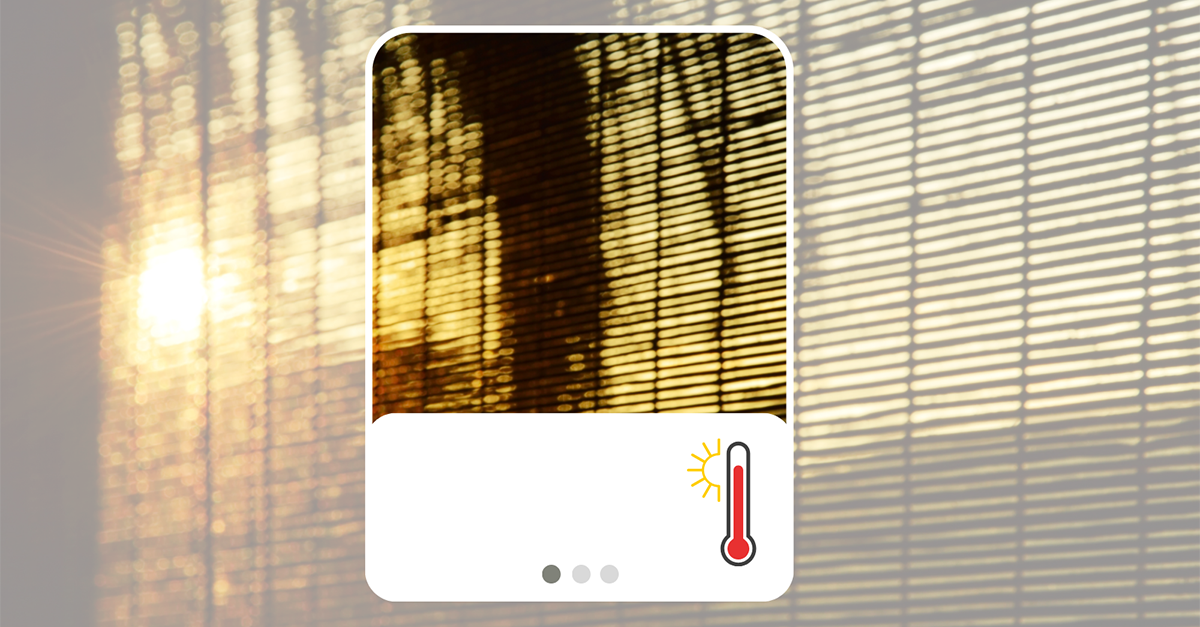
July 24 2023 –
The City of Vancouver is partnering with Vancouver Coastal Health and the BC Centre for Disease Control again to ask residents to track and report their indoor temperatures during periods of hot weather. Since the heat dome in 2021, this survey has collected data to inform regulation and policy updates, along with programs to protect residents and provide more public cooling spaces, as heat events are expected to occur more regularly.
Take the survey
Residents are invited to take the online survey before September 10 to share:
- Their home’s indoor temperature on hotter days;
- Information about the building characteristics where they live;
- Any barriers they experience accessing cooling inside or outside their home during periods of hot weather.
The survey takes approximately six minutes to complete and indoor temperatures can be measured using a digital wall thermostat, free-standing thermometer, a food thermometer, or a standard manual thermometer. Respondents are encouraged to record the temperature in the late afternoon or evening when indoor temperatures are at their highest.
Survey results
Heat has dangerous effects on human health, particularly for vulnerable populations who are exposed to sustained high temperatures without access to effective cooling options.
Since launching the indoor temperature survey in 2021, nearly 6,000 residents from across Vancouver have provided the following findings:
- Residents use a wide range of cooling techniques but still experience impacts to daily life.
- For many, accessing cooling opportunities outside the home is vital.
- There are a range of barriers to staying safe and cool during periods of hot weather, both inside and outside the home.
- Concern about climate change is growing and these concerns are elevated during periods of extreme heat.
This year’s survey is expected to be the final one conducted in this series.
Recommendations to stay cool
During an extreme heat emergency, both outdoor and indoor temperatures are well above the seasonal norms. Indoor temperatures between 26–31C can be dangerous for some. If indoor temperatures go above 31C, it is recommended people go to an air-conditioned space.
Hot weather, especially extreme heat events, can cause illnesses such as heat exhaustion and heat stroke. It is important to recognize the symptoms of heat exhaustion, External website, opens in new tab as they are a sign that immediate actions need to be taken to cool down. Signs of heat stroke are a medical emergency and people should seek medical care or call 9-1-1.
When it is very hot, it is recommended people stay hydrated and spend time in air conditioned spaces or visit public cooling centres if they are unable to cool their home. There are more than 200 permanent fountains across Vancouver, with additional temporary ones added during summer months. Misting stations also help people cool down and are available 24/7.
We all have a role to play by checking in on family members, neighbours and friends. This includes socially isolated seniors; people with chronic underlying health conditions, including mental health conditions that put them at greater risk; people that may have low income; and people who experience disabilities including barriers to mobility.
Stay informed
- Find places to cool or get the most up-to-date information by checking: https://vancouver.ca/hot-weather
- For timely updates, follow the City’s social media channels @CityofVancouver
Background
Although B.C. is considered more temperate than the rest of Canada, the province has already experienced the impacts of climate change firsthand with extreme weather events, including the 2021 heat dome. The B.C. Coroner Service confirmed the high temperatures resulted in 619 heat-related deaths across B.C. between June 25 and July 1, 2021, noting 98 per cent occurred indoors.
In Vancouver, we can expect an increase in the number, intensity, and duration of heat events due to climate change. As we continue to experience hotter and drier summers, the City is working with partners to effectively mitigate overheating in residential buildings.
To learn more, visit: https://vancouver.ca/extreme-weather